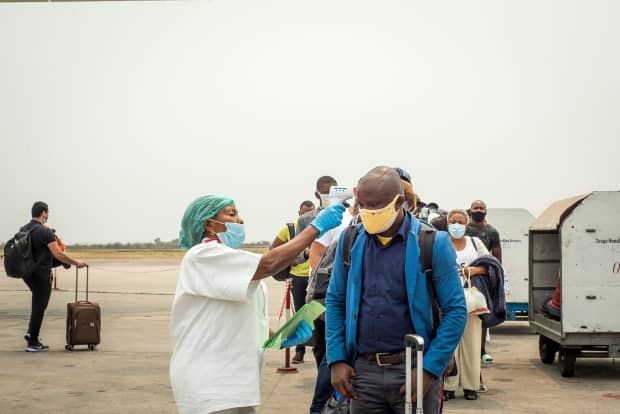This post was originally published on this site

A response team employee takes the temperature of passengers to disembark from an Ethiopian Airlines flight at the N’Djili International Airport in Kinshasa, Democratic Republic of the Congo.
Agence France-Presse/Getty Images
G-7 finance ministers on Monday discussed extending a freeze on debt service payments for low income countries into 2021, a U.S. Treasury spokesperson said.
In a readout, the U.S. official said the G-7 discussed the G-20 debt relief plan and “additional options going forward for low income countries, including an extension of debt suspension into 2021.”
The freeze for the 73 poorest nations is set to expire at the end of the year. The program, called the Debt Service Suspension Initiative, was designed to make sure these countries had money to fight the coronavirus pandemic.
Oxfam said in July that 41 countries have applied for the debt relief, potentially saving them $9 billion in 2020.
The nonprofit group criticized the G-20 temporary suspension of debt as “woefully inadequate” to stave off the worst effects of the pandemic because it fails to mandate any action from private creditors or multilateral development banks such as the World Bank.
According to the U.S. official, the G-7 called on “all official bilateral creditors” to fully implement the G-20 debt plan.
Economists said China has not been participating fully in the debt relief effort. The Asian giant has been a major lender to countries in Africa.
The G-7 officials also discussed supporting the manufacturing and distribution of vaccines and treatments for COVID-19, particularly related to low income countries.
The finance ministers also discussed support for Lebanon. The Lebanese economy was already suffering from a crisis before the Aug. 4 massive explosion in Beirut destroyed large parts of the capital including its sea port.
The officials also noted improvements in economic conditions across G-7 economies.
U.S. Treasury Secretary Steven Mnuchin hosted the G-7 virtual teleconference earlier Monday.

